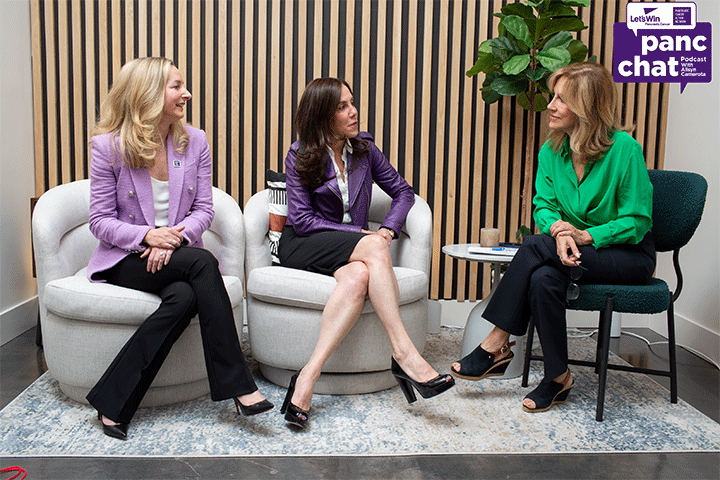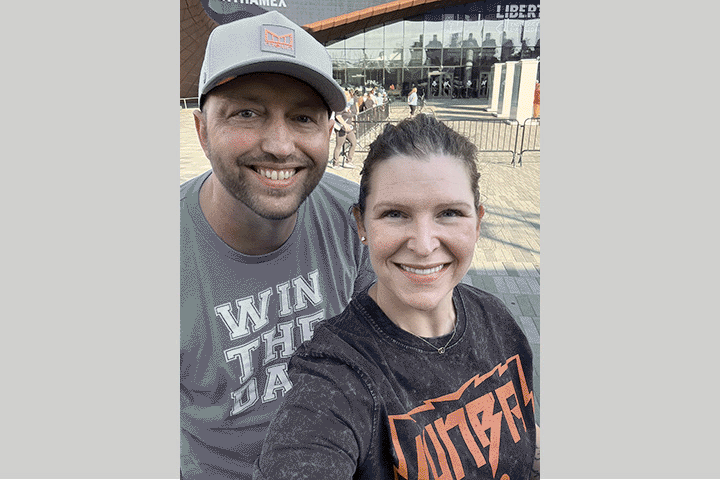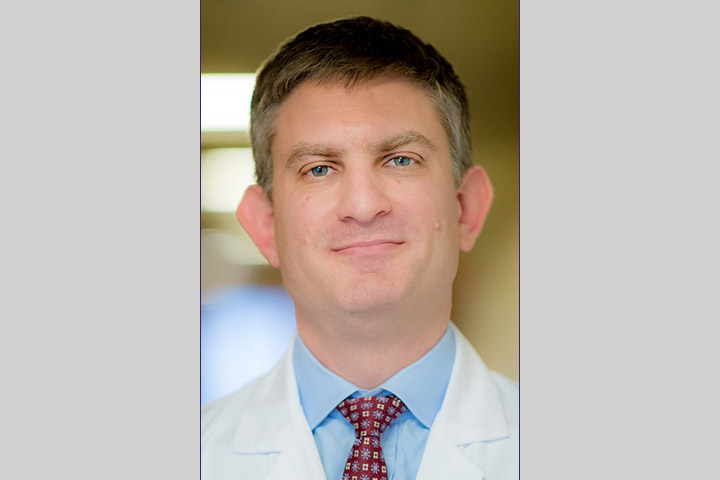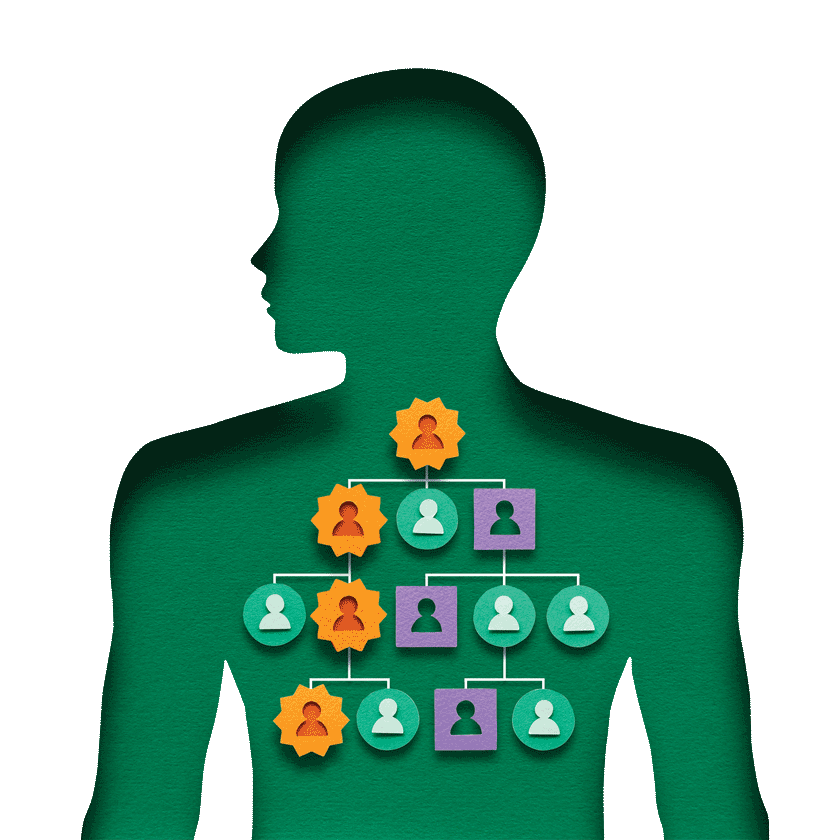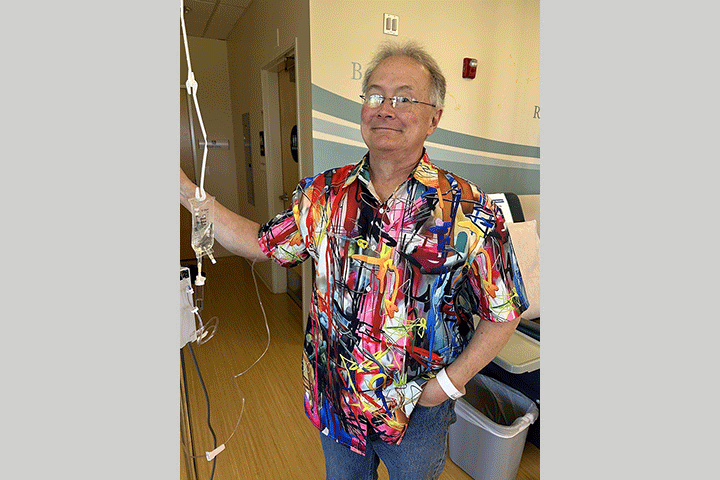Taking Chances to Beat Pancreatic Cancer
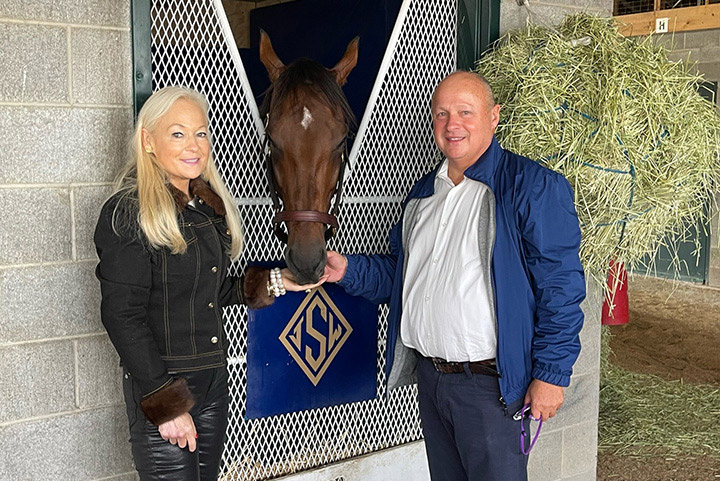
- Burning sensation in esophagus leads to diagnosis
- BRCA2 positive
- Maintenance with PARP inhibitor rucaparib
I recently heard that an extremely lucky person in California won $2 billion dollars in the lottery. I also feel like I won the lottery in life by beating pancreatic cancer.
In 2017 I developed a burning sensation in my esophagus. The pain would not go away. My sister Grace found a gastroenterologist, who ordered a CT scan. I thought the pain would be easily resolved by a change in my eating habits. I naively expected the doctor to tell me to stop eating salty foods and take some aspirin. Instead, the doctor called and asked me to come into his office in person. I told him my workday was very busy and that I wasn’t able to come in, but he insisted, saying that I needed to come right away.
That was the day I was diagnosed with pancreatic cancer. I was shocked, nervous, and scared. Pancreatic cancer was the disease that took my mother 25 years earlier. You can imagine how my world caved in upon itself in a matter of minutes.
I Didn’t Know What to Do!
Going back to work was all I could do that day. It took me a full 24 hours to find the words and courage to tell Grace. We have a strong sibling bond and I knew this would be hard for both of us.
I was introduced to Dr. Allyson Ocean at Weill Cornell Medicine by a friend who had been affected by the same disease. Dr. Ocean is an oncologist who works with many pancreatic cancer patients. She held my hand and gave me confidence, a road map, and a vision. She assured my sister and me that we were going to get through this. Having an experienced, trusted, and supportive doctor is everything.
Dr. Ocean referred me to Dr. Michael Lieberman at Weill Cornell, the best surgeon in my area. I immediately had a distal pancreatectomy and remained in the hospital for seven days. After the procedure, I started a grueling routine of chemotherapy with gemcitabine and cisplatin. It was about that time that I also found out I was BRCA2 positive, which explains why my mother and I developed the same disease: we had a family history.
Receiving chemo every day was challenging. It was a fight to get out of bed most days. The only thing that kept me going was my weekly walks through Central Park with Grace. I told Dr. Ocean that I didn’t know if I could make it through six months of chemo. But we persisted together.
A Partner In the Process
Throughout my journey I felt like I was a partner in the process. I also knew that I had to take some chances on things that were not yet approved in order to get better. Dr. Ocean prescribed rucaparib (Rubraca) as a maintenance drug. She prescribed it because Rubraca is a PARP inhibitor, and has shown success in BRCA-related cancers. I was on this drug for two years. My scans and blood work continued every month to check for cancer markers. Fortunately for me, it all came together.
As I celebrate being cancer-free for five years, I feel blessed to be surrounded by the special people in my life. My incredible sister Grace has been my rock every step of the way. My friends and my colleagues at work showed extensive flexibility and support throughout everything. Finally, the Starker family, who experienced their own journey with pancreatic cancer, were by my side from the very first day.
At first I didn’t like talking about my diagnosis. But I realized that the more I talked about it, the more I could help other people. So here I am. You don’t have to die from this disease. You can make it.
My advice for others on this journey
- Find a medical team who will advocate for you.
- Be willing to take risks.
- Surround yourself with people who love you.
- Every step we make in this journey, no matter how small, is an important step forward.
Cancer sucks… but I try to live each day to the fullest.
Watch Jay tell his story in “You Can Do Anything.”
